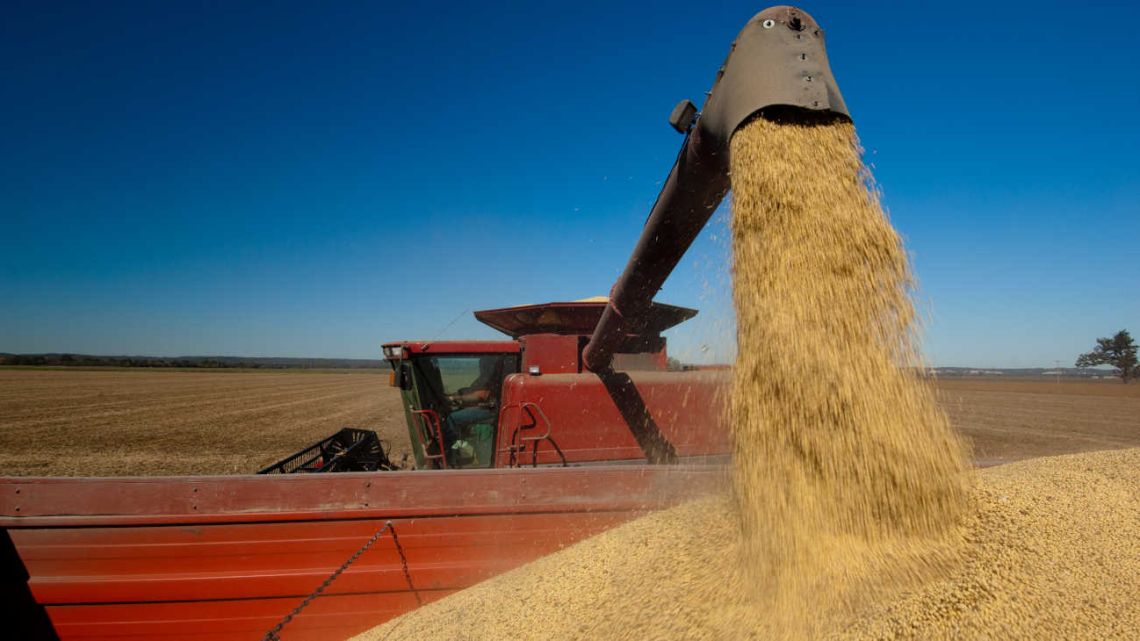The strong price variations experienced by the Chicago Market, driven by the American droughtis not reflected in Argentina, since the adoption of interventionist policies on grains, without outstanding prices, hit the local market during June.
The grain market faces great price volatility for agricultural commodities as a result of the severe drought that the United States is going through and the record harvest of soybeans and corn that Brazil will obtain, in addition to the follow-up that must be done in the event of the conflict in the Black Sea, which is why specialists in economics and grain trade urge producers to evaluate in detail the fluctuations that prices follow, despite the fact that the domestic market shows distant from all external uncertainty due to the limitations that persist in the local order.
There, in statements to the program Country Airin Radio Perfil, the president of the consulting firm Novitas, Enrique Erizecommented that “the international market faces great price volatility for grains. Pressured by the drought in the United States and a super harvest of second-rate soybeans and corn in Brazil. With investment funds buying positions since the beginning of June and going out this week.”
“The monthly reports from the USDA – he said – give the worst rating for the crops in the last five years, and this already speaks of cutting the crop. There is no margin for error and the feeling of commercial operators in the United States, and the investment funds, is that there will be no US record harvest, since today there is 64% of corn with drought, and also 57% of soybeans.”
Asked about how the grain market in Argentina acted in the face of constant changes in international prices, Erize explained that “Argentina it is totally divorced from the international market. Wheat and maize (export) records are closed. The Soybean Dollar 3 has ended and it will no longer be sold. The oilseed will not be sold at the official dollar. There are still 12 million tons, which can wait for a Soybean Dollar 4″.
Also the economic analyst Salvador Di Stefano, urged agricultural producers and investors to act with caution in the face of eventualities that could occur both locally and internationally. “What companies in Argentina have to do, including agricultural ones, is finance the investment curve for the next twelve months. For the next agricultural campaign, then think about planting to obtain greater productivity and competitiveness.”
On the other hand “downplay the news about the prices of grains, since the world surprises every day. For example, today we have a supposed uprising against Putin in Russia, this undoubtedly affects the oil market and 60% of the commodity market in the US, a fact that, like other issues, can generate volatility in grain prices,” Di Stéfano explained.
He added that the local producer to “obtain financing, today has good cards and good credit. But you have to put it together and be awake and evaluate well the conditions of the loans that are in dollars or pesos. There it must be taken into account for decision-making what is the projection of the interest rates of the credits, the inflation rate and also the devaluation. All this is put in the investment curve to obtain annualized financing, so the producer can put his head in production.”
Enrique Erize also commented that to obtain financing “today it is difficult for those who have soybeans to sell to cover daily needs. Many may think that in a few months there may be a new exchange rate. Now, explained Erize, if a soybean is offered at 400 dollars, the bean is going to show up, also clearly a Corn Dollar, It could be a way to capture necessary resources for the Argentine Statealthough this would be a contradictory policy for the official strategy of not endorsing an increase in internal prices and it would be quite a situation for the links in the chain that convert grain into protein such as pigs, bovine cattle or chickens,” he clarified.
LT
